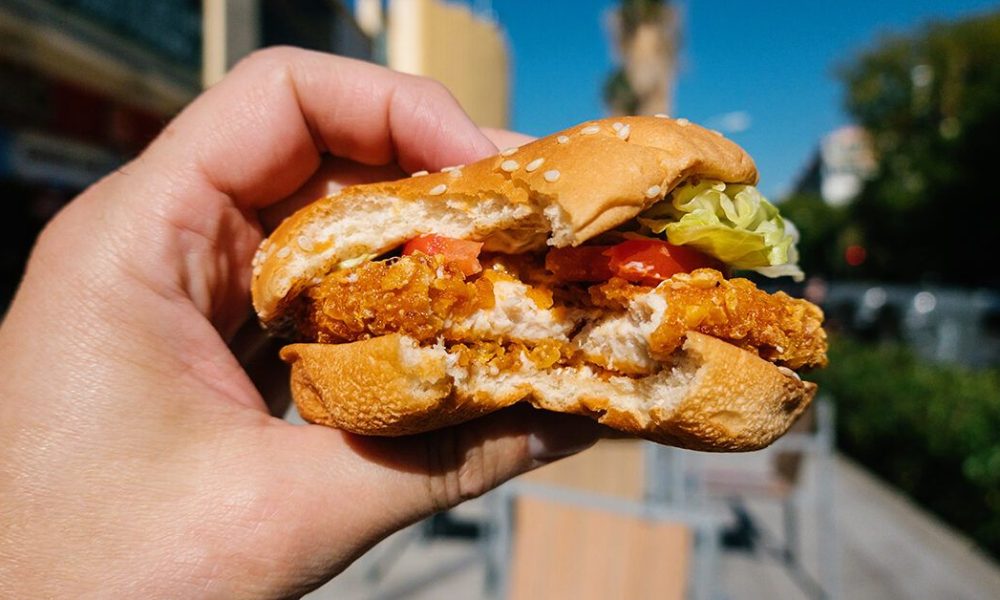Cataract surgery is a common procedure that significantly improves vision by replacing the clouded lens in the eye with an artificial one. While the surgery itself is relatively straightforward, post-operative care is crucial to ensure a smooth recovery and optimal results.
One of the most important aspects of recovery is diet. Knowing what food not to eat after cataract surgery can make a significant difference in your healing process. In this article we will explore the foods that shold be avoided after cataract surgery to help you achieve the best possible outcome

Importance of Diet After Cataract Surgery
After cataract surgery, your eyes are in a delicate state and need time to heal. A proper diet can aid in reducing inflammation, preventing infections, and promoting faster recovery. Conversely, consuming the wrong foods can slow down the healing rocess and may even cause complications. Understnding which foods not to eat after cataract surgery i therefore vital.
Foods to Avoid After Cataract Surgery
- Processed Foods
- Sugary Foods and Beverages
- Why Avoid: High sugar intake can lead to spikes in blood sugar levels, which can interfere with the healing process. Additionally, sugary foods can cause an increase in inflammation.
- Examples: Sodas, candies, pastries, and sweetened cereals.
- Refined Carbohydrates
- Why Avoid: Refined carbs, such as white bread and pasta, can cause blood sugar levels to spike. This can increase the risk of inflammation and slow down the healing process.
- Examples: White bread, white rice, and pasta made from refined flour.
- Salty Foods
- Why Avoid: Excessive salt intake can lead to fluid retention, which may increase intraocular pressure. This can be harmful after cataract surgery as it puts additional strain on the healing eyes.
- Examples: Canned soups, chips, salted nuts, and processed cheese.
- Spicy Foods
- Why Avoid: Spicy foods can cause discomfort and irritation, particularly if you accidentally rub your eyes after handling them. Additionally, they can contribute to acid reflux, which can exacerbate inflammation.
- Examples: Hot peppers, spicy sauces, and dishes with a hih level of seasoning.
- Alcohol
- Why Avoid: Alcohol can interfere with the effectiveness of medications prescribed after cataract surgery. It can also cause dehydration, which is not conducive to healing.
- Examples: Beer, wine, spirits, and cocktails.
- Caffeine
- Why Avoid: While caffeine is not necessarily harmful in moderation excessive intake can lead to dehydration and increased intraocular pressure. It best to limit caffeine consumption during the recovery period.
- Examples: Coffee, energy drinks, and caffeinated sodas.
- Dairy Products
- Why Avoid: Some people may experience an increase in mucus production after consuming dairy products, which can lead to discomfort and eye irritation. It’s advisable to limit dairy intake immediately following surgery.
- Examples: Milk, cheese, butter, and cream-based sauces.
- Fried Foods
- Why Avoid: Fried foods are high in unhealthy fats and can contribute to inflammation. They also tend to be calorie-dense, which can lead to weight gain and other health issues that may complicate recovery.
- Examples: Fried chicken, French fries, and doughnuts.
- Red Meat
- Why Avoid: Red meat is high in saturated fats which can promote inflammation in the body. It’s advisable to limit the consumption of red meat and opt for lean protein sources instead.
- Examples: Beef, lamb, and pork
Foods to Include in Your Diet After Cataract Surgery
While knowing which foods not to eat after cataract surgery is crucial it’s equally important to focus on foods that can support your recovery Here are some food groups to include in your diet:
- Leafy Green Vegetables
- Rich in antioxidants like lutein and zeaxanthin, which are beneficial for eye health.
- Omega-3 Rich Foods
- These foods have anti-inflammatory properties and are good for overall eye health.
- Examples: Salmon, flaxseeds, and walnuts.
- Vitamin C-Rich Fruits
- Vitamin C can help reduce inflammation and promote healing.
- Examples: Oranges, strawberries, and bell peppers.
- Whole Grains
- Whole grains are better than refined grains as they don’t cause blood sugar spikes.
- Examples: Brown rice, quinoa, and oats.
- Lean Protein
- Protein is essential for tissue repair and overall recovery.
- Examples: Chicken breast, turkey, and tofu.
Post-Surgery Tips for a Smooth Recovery
- Stay Hydrated: Drink plenty of water to keep your body hydrated and to support the healing process.
- Avoid Strenuous Activities: Give your eyes time to heal by avoiding heavy lifting and intense exercise.
- Follow Your Doctor’s Instructions: Adhere to the prescribed medication regimen and attend all follow-up appointments.
- Wear Protective Eyewear: Protect your eyes from dust, wind, and bright light by wearing sunglasses or an eye shield as recommended by your doctor.
- Get Plenty of Rest: Adequate sleep is crucial for your body’s healing process, including your eyes.
Recommendations from Renowned Eye Specialists on Post-Cataract Surgery Diet
When it comes to post-operative care after cataract surgery, several well-known ophthalmologists and eye care professionals emphasize the importance of a healthy diet in the recovery process. Below are some recommendations from these experts:
Dr. David F. Chang, MD – Clinical Professor at the University of California, San Francisco, and Past President of the American Society of Cataract and Refractive Surgery (ASCRS)
- Recommendation: Dr. Chang emphasizes the importance of reducing inflammation post-surgery. He advises patients to avoid foods high in sugar and refined carbohydrates, which can exacerbate inflammation and potentially delay healing. Instead, he suggests incorporating anti-inflammatory food such as leafy greens and omega-3-rich fish, to promote recovery.

Dr. Eric D. Donnenfeld, MD – Clinical Professor of Ophthalmology at NYU and Former President of ASCRS
- Recommendation: Dr. Donnenfeld recommends avoiding alcohol and caffeinated beverages immediately after cataract surgery. He explains that these substances can lead to dehydration and increase the risk of complications. He advises patients to focus on staying hydrated with water and to consume a diet rich in vitamins and minerals, particularly those that support eye health, such as vitamins C and E.
Dr. Vance Thompson, MD – Ophthalmologist and Founder of Vance Thompson Vision

- Recommendation: Dr. Thompson suggests avoiding spicy foods and heavy, greasy meals after cataract surgery. He notes that these types of foods can cause discomfort and may interfere with the body’s natural healing process. He recommends a diet rich in antioxidants, such as those found in colorful fruits and vegetables to support overall eye health.
Dr. Kerry Solomon, MD – Ophthalmologist and Cataract Surgeon at Carolina Eyecare Physicians

- Recommendation: Dr. Solomon advises his patients to steer clear of processed and fast foods, which are often high in unhealthy fats and sodium. He stresses the importance of consuming whole, unprocessed foods that are nutrient-dense, such as whole grains, lean proteins, and fresh produce. These foods can help reduce inflammation and promote faster healing.
These expert recommendations align with the general advice on foods not to eat after cataract surgery and underscore the importance of a balanced, nutrient-rich diet in ensuring a smooth recovery By following these guidelines and avoiding harmful foods patients can optimize their post-surgical outcomes and maintain healthy vision.
Conclusion
Understanding what food not to eat after cataract surgery is an essential part of the recovery process. By avoiding processed foods, sugary treats, and other harmful items, you can help ensure a smooth recovery and protect your vision for the long term Health Ideas suggest focusing on a balanced diet rich in nutrients that promote healing and always following your doctor’s advice for the best outcome.
This article provides a comprehensive guide on foods to avoid after cataract surgery. By following these dietary recommendations, you can take a proactive approach to your recovery and enjoy the benefits of improved vision without complications.



No Comment! Be the first one.